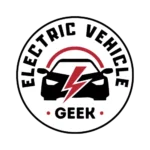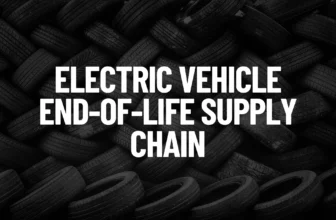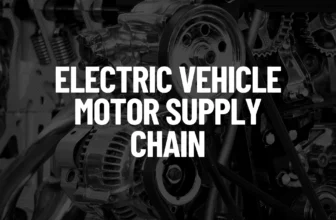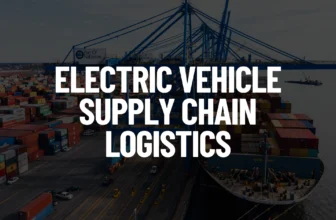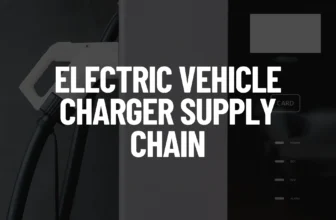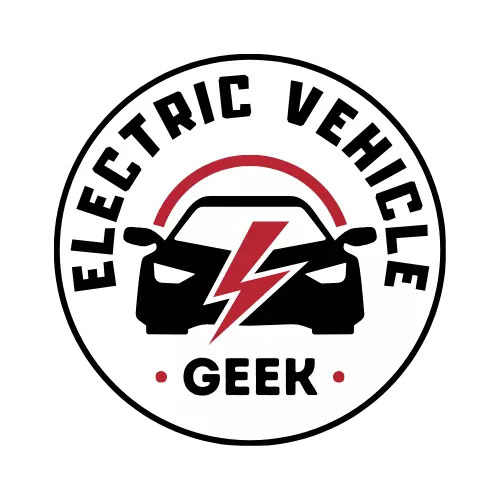The electric vehicle semiconductor supply chain is a critical part of the overall EV supply chain ecosystem. It involves the production, sourcing, and distribution of microchips that are essential for various functions within EVs. These semiconductors are integral for the performance and efficiency of electric vehicles, as they are used in control systems, power electronics, and communication systems.
Table of Contents
- The Rapid Growth of the Automotive Semiconductor Market
- Participants in the EV Semiconductor Supply Chain
- Challenges and Opportunities in The EV Semiconductor Supply Chain
The Rapid Growth of the Automotive Semiconductor Market
The automotive semiconductor market has experienced impressive growth, reaching an estimated $40 billion in 2019, with projections suggesting it could reach up to $200 billion by 2040. From 2013 to 2019, the sector grew at a compound annual growth rate (CAGR) of approximately 8%, reflecting the increasing reliance on advanced electronics in vehicles.
The growing sophistication of automobiles—driven by the integration of software, electronics, and connectivity—has significantly accelerated the demand for semiconductors.
Moreover, the shift towards electric vehicles (EVs) is not just influencing vehicle designs but also transforming entire automotive supply chains, further emphasizing the critical role automotive technologies play in shaping the semiconductor market.
Participants in the EV Semiconductor Supply Chain
Here are some of the key participants in the EV semiconductor supply chain:
- Raw material suppliers: These companies extract and process the raw materials needed for semiconductor manufacturing, such as silicon, germanium, and various metals.
- Chip manufacturers (fabricators): Also known as foundries, these companies produce semiconductor chips. These manufacturers are responsible for the complex processes of creating integrated circuits on silicon wafers.
- Integrated circuit (IC) designers: Companies that specialize in designing the architecture and layout of semiconductors. They may not have their fabrication facilities and may rely on foundries to manufacture their designs.
- Semiconductor suppliers: These companies provide semiconductor components to automotive suppliers. They may also provide research and development (R&D) for new IC designs, packaging, materials, and systems.
- Tier 1 suppliers: These companies directly supply parts and systems to automakers. They often integrate semiconductors and other components into larger modules and systems. Examples include companies that specialize in power electronics, electric motors, and battery management systems.
- Automakers (OEMs): Original Equipment Manufacturers, the companies that design, manufacture, and sell vehicles. Automakers are increasingly becoming more involved in the semiconductor supply chain to ensure a stable supply and to integrate new technologies into their vehicles. Automakers may form partnerships directly with chip manufacturers.
- Software developers: These companies create the software that runs on the semiconductors in EVs. This includes software for battery management, driver assistance, and other vehicle systems.
- Charging infrastructure providers: While not directly involved in semiconductor manufacturing, these companies rely on semiconductors for the charging stations and related infrastructure that support EV adoption.
- Recycling companies: These companies are responsible for the end-of-life management of EVs, including the recovery and recycling of valuable materials from batteries and electronics.
Challenges and Opportunities in The EV Semiconductor Supply Chain
The electric vehicle semiconductor supply chain is undergoing significant transformation, driven by the increasing adoption of EVs and the growing complexity of vehicle electronics, highlighted below are some of the key challenges and opportunities in the EV semiconductor supply chain.
Innovation in Semiconductor Design and Technology
The semiconductor industry must innovate in IC designs, packaging techniques, materials, and system architectures to meet the growing demand for higher performance, energy efficiency, miniaturization, and cost-effectiveness in advanced technologies such as AI, 5G, and IoT. These advancements help tackle key challenges like heat management, sustainability, and the slowing of Moore’s Law, ensuring competitiveness and enabling emerging applications like quantum computing and autonomous systems.
Investments in R&D and M&A for EV Growth
For the electric vehicle (EV) sector, substantial investments in research and development (R&D) and strategic mergers and acquisitions (M&A) are necessary to enhance manufacturing capabilities and meet the increasing demand for high-performance, efficient components.
Supply Chain Challenges in EV Semiconductors
The EV semiconductor supply chain faces several challenges, including limited access to critical data, production inputs, spare parts, and maintenance items, which contribute to price volatility and shortages of essential components. Rising demand for advanced chips, global supply chain disruptions, reliance on scarce materials, and inadequate infrastructure further exacerbate these issues, leading to production delays and strained manufacturing processes within the EV industry.
Streamlining Semiconductor Selection for Automakers
Automakers can address these challenges by adopting a holistic design philosophy that standardizes and simplifies semiconductor selection. This approach streamlines processes, reduces complexity, and improves compatibility across vehicle models. It also optimizes the supply chain, lowers costs, and increases efficiency, making it easier to meet the growing demand for advanced semiconductors in the EV industry.
Addressing the Skills Gap in the EV Sector
One of the key challenges facing the semiconductor supply chain is the skills gap, as highlighted by experts we interviewed during our research for this post. Below are some of the solutions they are implementing to address this issue.
The Growing Demand for Skilled Workers
As the electric vehicle (EV) industry expands, the need for skilled workers with expertise in critical EV technologies—such as battery technology, electric drivetrains, and software integration—is outpacing the supply of qualified professionals. This skills gap presents a challenge for automakers and technology providers as they work to meet the rapidly increasing demand for electric vehicles.
Bridging the Gap Through Training and Collaboration
To address this shortage, the EV industry must prioritize investments in specialized training programs and partner with educational institutions to develop tailored curriculums. Workforce development initiatives will help equip professionals with the necessary skills, ensuring they can meet the technical demands of modern EV systems.
Ensuring Continued Growth and Innovation
Filling the skills gap is essential for sustaining the growth of the EV sector. By addressing this issue, automakers and technology providers can ensure they remain competitive, drive innovation, and continue to lead advancements in EV technology. A well-trained workforce will not only meet the growing demand for electric vehicles but also contribute to the sector’s long-term success and evolution.
As a professional in the semiconductor supply chain, your expertise and insights are invaluable in enhancing the impact of this blog.
I invite you to collaborate by sharing your knowledge, real-world experiences, and case studies. Together, we can explore the complexities of the semiconductor supply chain, offering actionable insights, innovative solutions, and best practices that can drive the industry forward.
If you’ve found my content valuable for your work in the semiconductor supply chain, a letter of recommendation would be deeply appreciated. Your support will inspire me and enable me to contribute meaningfully to the growth and efficiency of the semiconductor sector.
Let’s collaborate to shape the future of the semiconductor supply chain and build a knowledge base that supports its ongoing evolution.
Feel free to reach out to me via email at james@electricvehiclegeek.com.
Thank you for your engagement and for being an essential part of this journey!
